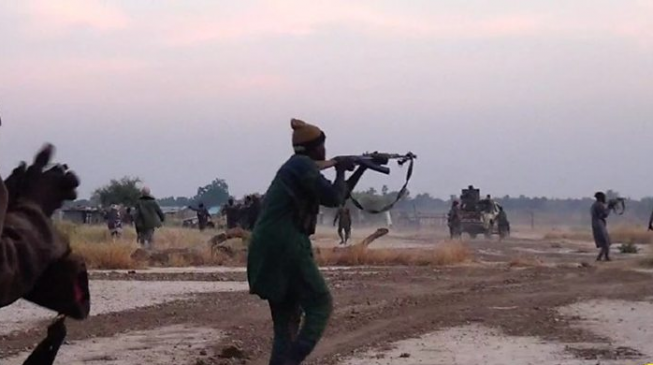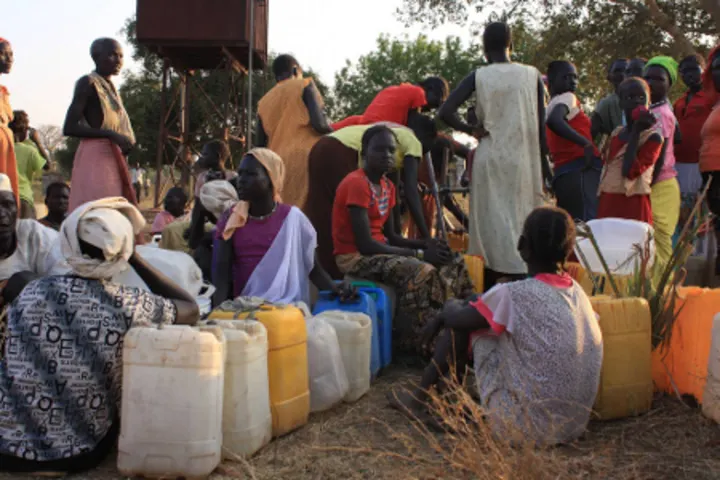
Jihadists have killed around 30 men in a revenge attack after their commanders died in military airstrikes in Nigeria’s northeast Borno state.
Fighters from the Islamic State West Africa Province (ISWAP) seized the men in Mudu village in the Dikwa area on Saturday.
“Most of the 30 men were slaughtered by ISWAP terrorists while a few who tried to flee were shot,” militia leader Babakura Kolo said.
“They were metal scrap scavengers who were in the area in search of burnt vehicles which dot villages in northern Borno following attacks by the terrorists,” he said.
He said the men had trekked from the town of Rann, 80 kilometres away, where they lived in camps for people displaced by the jihadist violence.
Another militia leader Umar Ari said ISWAP had accused the slain men of passing information on their positions to the military in the area.
“The 30 men were unlucky to have been in the area at that time when the terrorists were grieving the death of their two commanders killed in a military operation”.
In recent weeks, the Nigerian military has carried out successful ground and air assaults against ISWAP and rival Boko Haram fighters, killing several high-profile Jihadist commanders.
ISWAP split from mainstream Boko Haram in 2016 and rose to become a dominant group in the region.
The two groups have increasingly been targeting civilians, particularly loggers, farmers and herders, accusing them of spying on them.
The jihadist violence has killed over 40,000 people and displaced around two million from their homes in the northeast since 2009, according to the UN.
Most of the displaced who live in camps rely on food handouts from aid agencies, forcing many to turn to felling trees in the arid region for firewood and scavenging for metal scraps which they sell to buy food.
Local authorities have been returning the displaced back to their homes despite serious concerns about their safety.
The jihadist uprising has spread to neighbouring Niger, Chad and Cameroon, prompting a regional military coalition to fight the insurgents.













